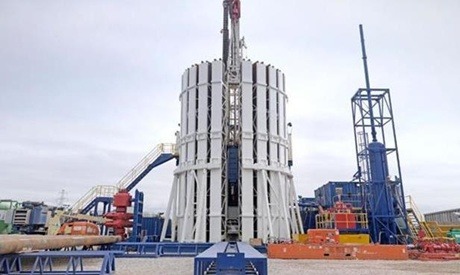Fracking water 'best practice' needed
2 Sep 2014

US chemists are investigating new techniques to treat and reuse fracking water.
A group of scientists from Rice University (RU) has performed detailed analysis of water produced by hydraulic fracturing (fracking) of three gas reservoirs and is suggesting environmentally friendly remedies are essential if industry attempts to treat and reuse it.
The study appeared this week in the Royal Society of Chemistry journal Environmental Science: Processes and Impacts.
Initially, the project undertook chemical analysis of fracking fluids pumped through gas-producing shale formations in Texas, Pennsylvania and New Mexico.
“Adopt best practices at the start, as opposed to evolving over time
RU chemist Andrew Barron
Early findings suggested that shale oil and gas-produced water does not contain significant amounts of the polyaromatic hydrocarbons that could pose health hazards. Instead, the research team discovered minute amounts of other chemical compounds which led the team to suggest that the industry would be wise to focus its efforts on developing nonchemical treatments for fracking and produced water.
The RU team also found that produced water contained potentially toxic chlorocarbons and organobromides, most likely formed from interactions between high levels of bacteria in the water and salts or chemical treatments used in fracking fluids.
Barron said industry sometimes uses chlorine dioxide or hypochlorite treatments to recycle produced water for reuse, but these treatments can often enhance bacteria’s ability to convert naturally occurring hydrocarbons to chlorocarbons and organobromides.
The researchers suggested this transition could happen either downhole or in storage ponds where produced water is treated.
“We believe the industry needs to investigate alternative, nonchemical treatments to avoid the formation of compounds that don’t occur in nature,” said RU chemist, and lead researcher, Andrew Barron.
Foremost, he said the research team wants its analysis to anticipate future problems as industry develops processes to remove organic compounds from water bound for reuse.
“As the UK and other European countries are looking to start hydraulic fracturing, it is important that they adopt best practices at the start, as opposed to evolving over time, as it has occurred here in the United States,” Barron said.

